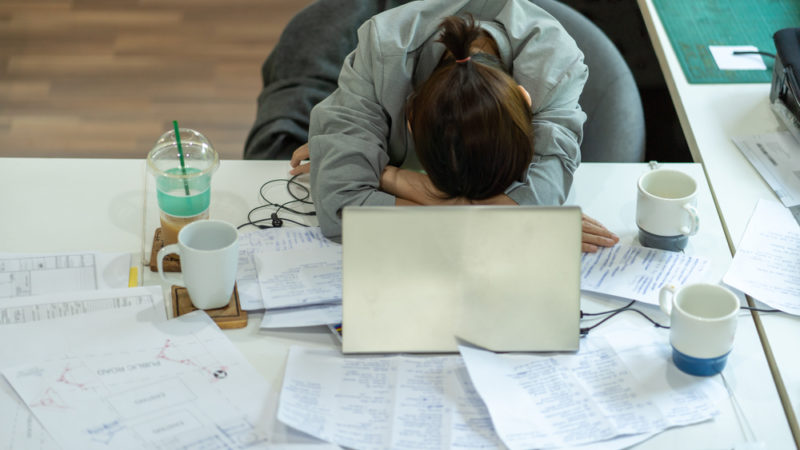Opinion
Pandemic stress
COVID and gender
In Short
Supporting each other, strengthening each other, will require that all of us are heard, that the work of holding each other is shared
A colleague and friend, Miriam Heller Stern, told me recently that she was increasingly aware of the gender issues that have arisen during the pandemic. She reported that, in professional settings, many men are talking about what they have achieved, and many women are talking about how exhausted they are. We reflected on the number of women who have left the workforce during the pandemic. What is the ongoing impact of gender as we emerge from COVID lockdown? Not simply men and women, but people of all genders as well?
In the pandemic, women lost nearly 1 million more jobs than men. Will these women return to the paid work force? Many of the apparent advances towards equity in recent years have proved flimsy under the pressures of the pandemic. The lack of infrastructure to support women, including childcare, equal wages and legal protections, coupled with increases in alcohol use, child and spousal abuse, depression and anxiety may yield long-term changes in our work force. Can we regain what has been lost, but build it on a sturdier foundation?


Shutterstock
Pandemic stress also highlights one of the gender differences we need to think about – the emotional labor that so often lands on women. The labor of managing children and their feelings, or holding it together to support both those we live with and those we work with, the implicit and explicit expectation that women’s work is 24/7. This labor is both unpaid and undervalued. What does it say about us that essential emotional work is devalued? If the pandemic has taught us anything, I hope it has taught us that our emotional lives matter.
How do we reinvest in our entire workforce, paid and unpaid? To strengthen the lives of children, we need to support the lives of parents. We need to create truly equitable work spaces, and refuse to return to practices that diminish or ignore the voices of women and others historically disempowered. We need to recognize that the experiences of women in the pandemic have only illuminated the pre-existing fault lines of gender inequality and our cultural devaluation of women’s concerns. Women’s concerns are not women’s issues. They are human issues.
As our society reopens, I expect we will see conflict between senior management and lower-level employees, between those who manage businesses and those who manage families. How we invite people back into the workforce and how we help them manage their lives will have a huge impact on the numbers of women who can hold on or return to their jobs.
I am NOT saying that the pandemic has been easy on men. It hasn’t. Men are talking about their exhaustion and frustration. Men, whether in leadership positions or lower level jobs, have suffered. But we cannot pretend that there is equity in the impact of COVID on Americans, whether by race, gender or socio-economic status.
What I am saying is that a real recovery has to involve all of our voices. We need to make space to listen and hear the experiences of all of us – and to truly consider why differences exist. Don’t simply create space, but ask questions – listen to the answers and really HEAR them. So often women’s words get lip service. Don’t solve problems until you have heard about them and understood them from the perspective of those reporting them. Value the voices, opinions and needs of both men and women, and understand that all perspectives are essential to a fuller, deeper society. Communicate your appreciation in meaningful ways. Create space for emotional work. Value how you feel and how others feel. If you think you’re already doing this, do it more.
The pandemic isn’t over. We still see swathes of infection. We are nowhere near herd immunity. Camp staff are reporting heightened anxiety, regressions, fear and tears in campers. Organizations are planning for reopening, knowing that many of us are scared to come back into spaces that once felt safe. The trauma isn’t over. Supporting each other, strengthening each other, will require that all of us are heard, that the work of holding each other is shared. We will not heal without healing all of us. One small step at a time, over time, with intention and the honoring of all voices.
Betsy S. Stone, Ph.D., is a retired psychologist who currently teaches as an adjunct lecturer at HUC-JIR. Her classes include Human Development for Educators, The Spiritual Life-Cycle, Adolescent Development and Teens In and Out of Crisis. She is a regular contributor to eJewish Philanthropy.












